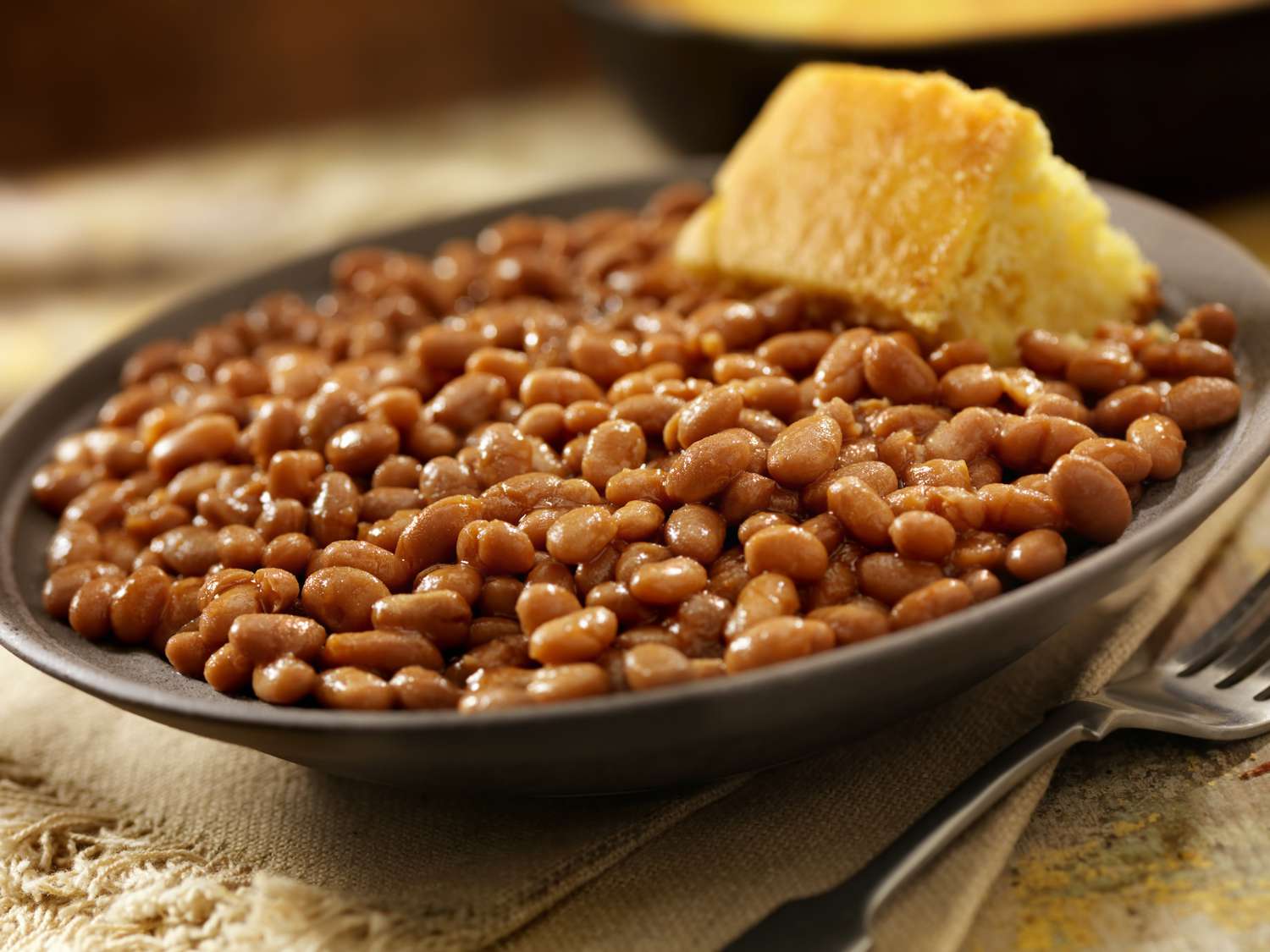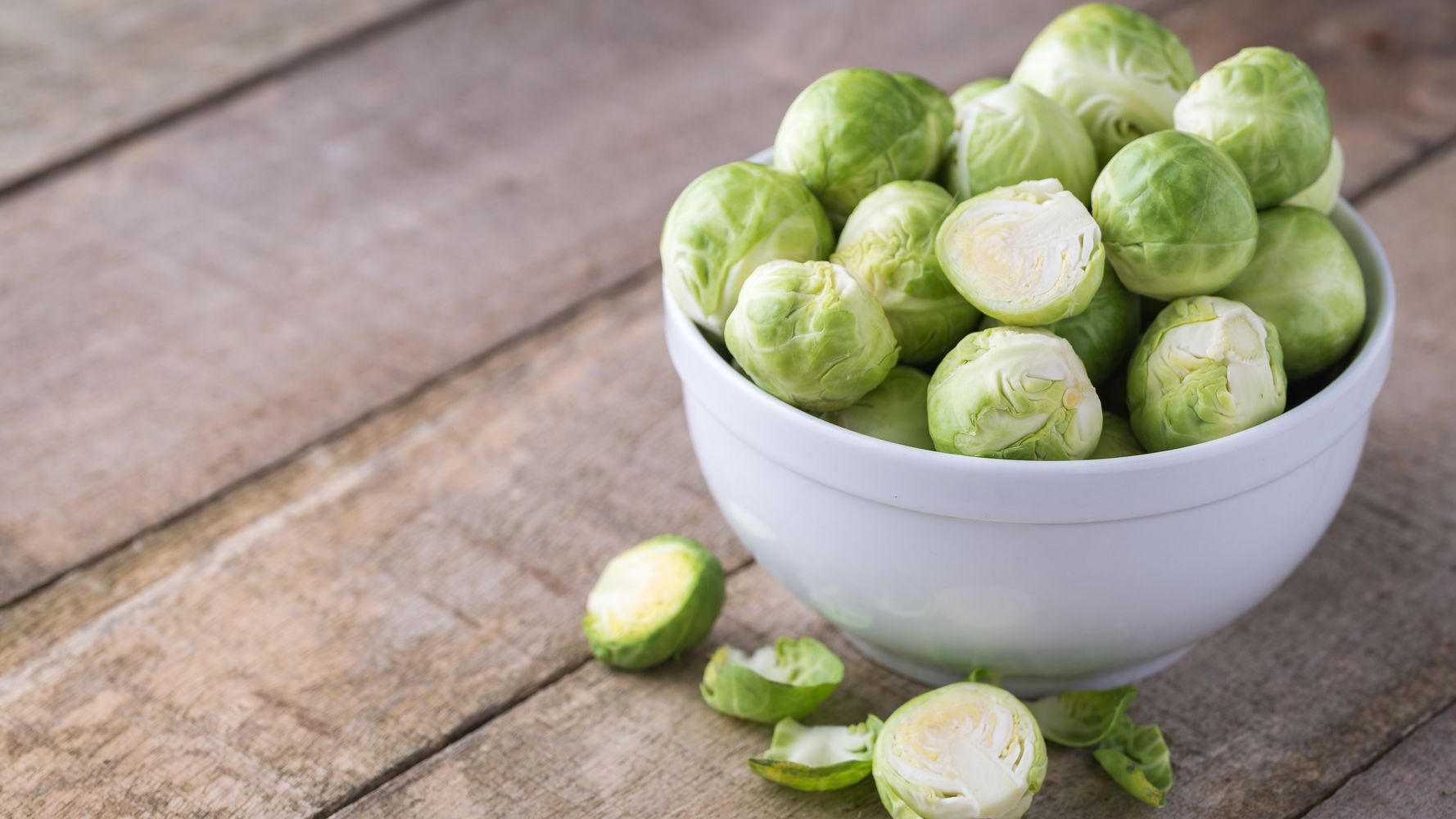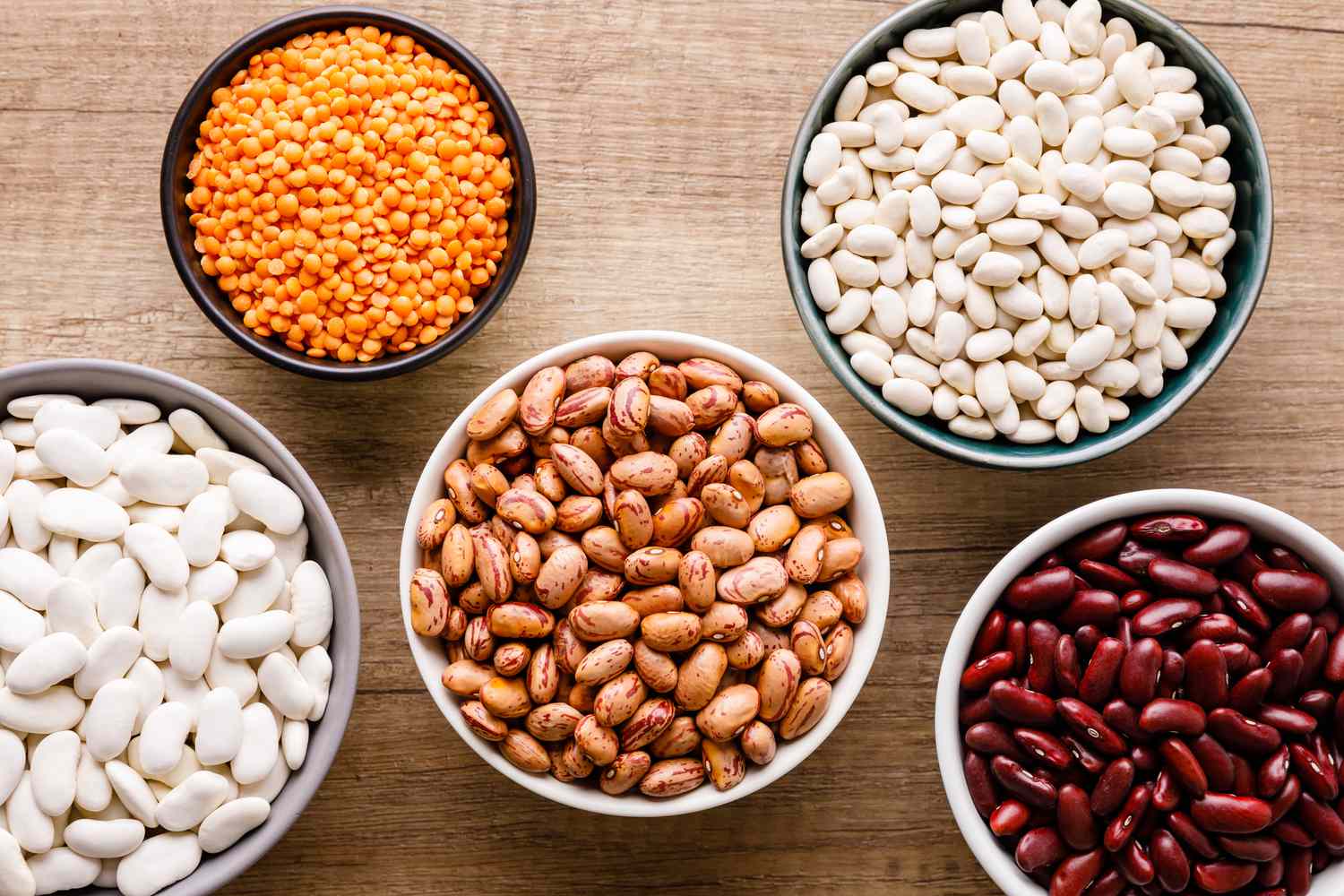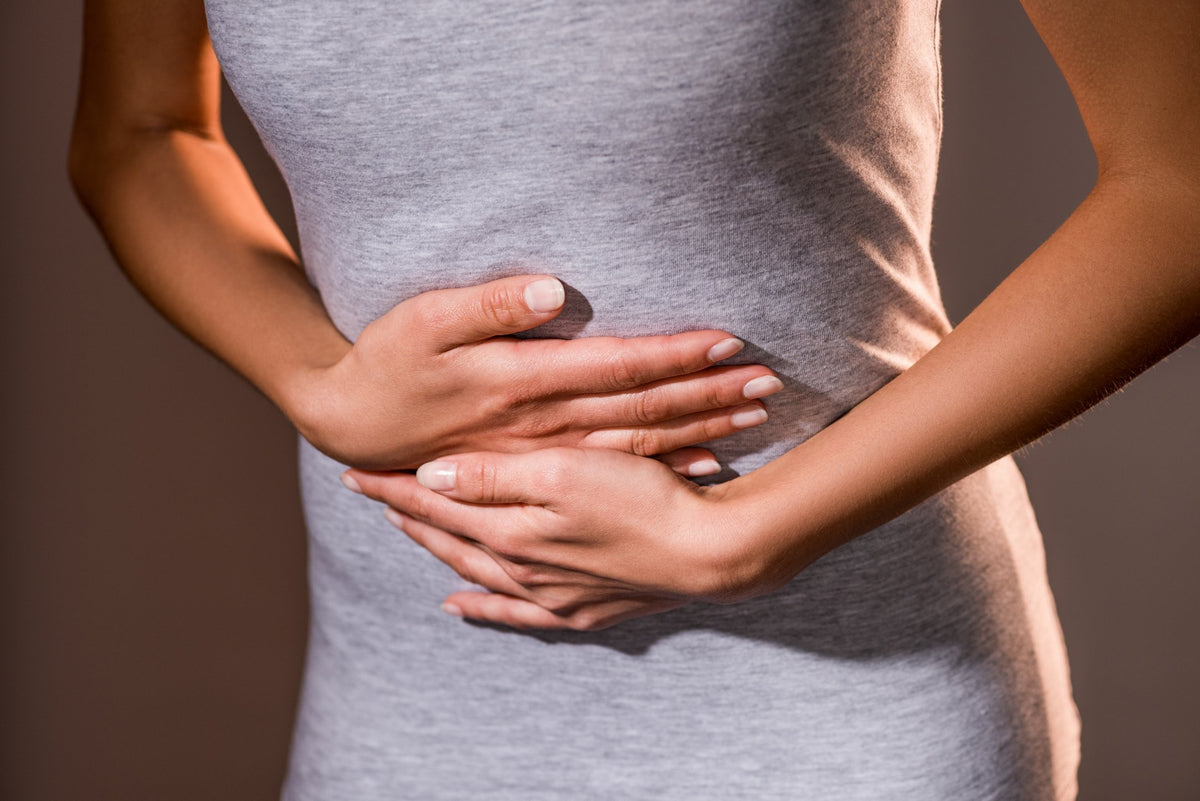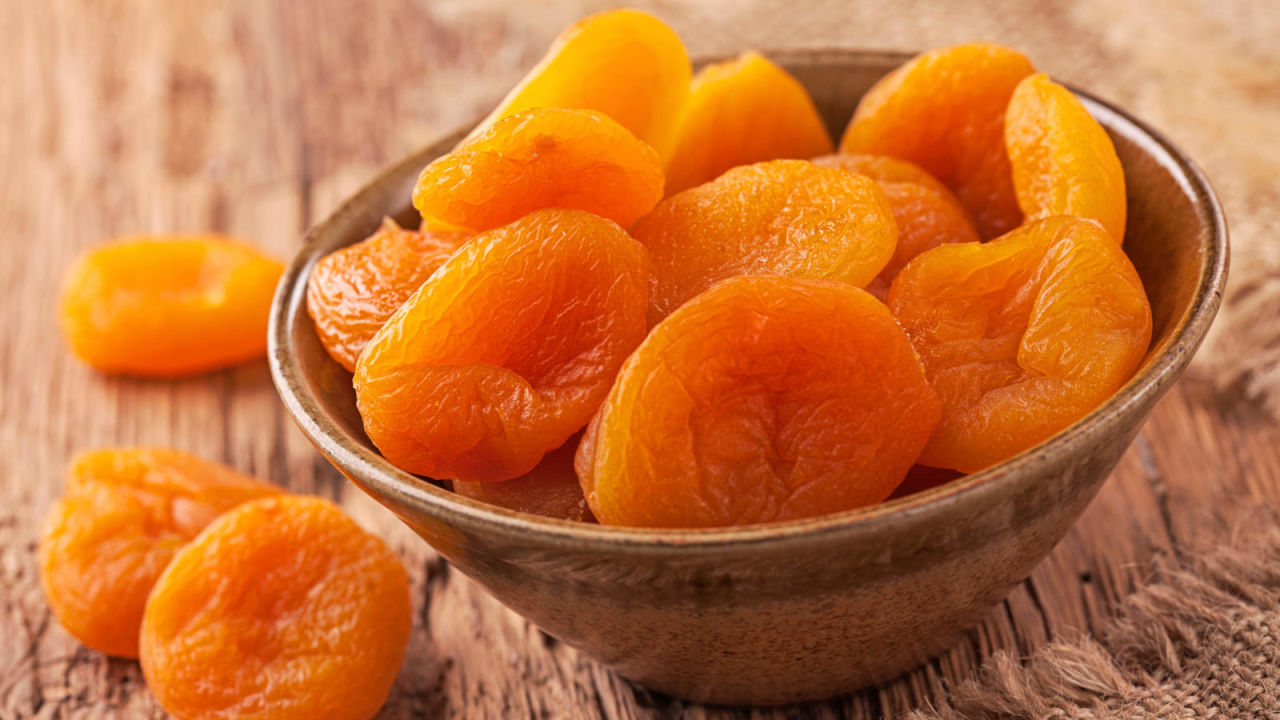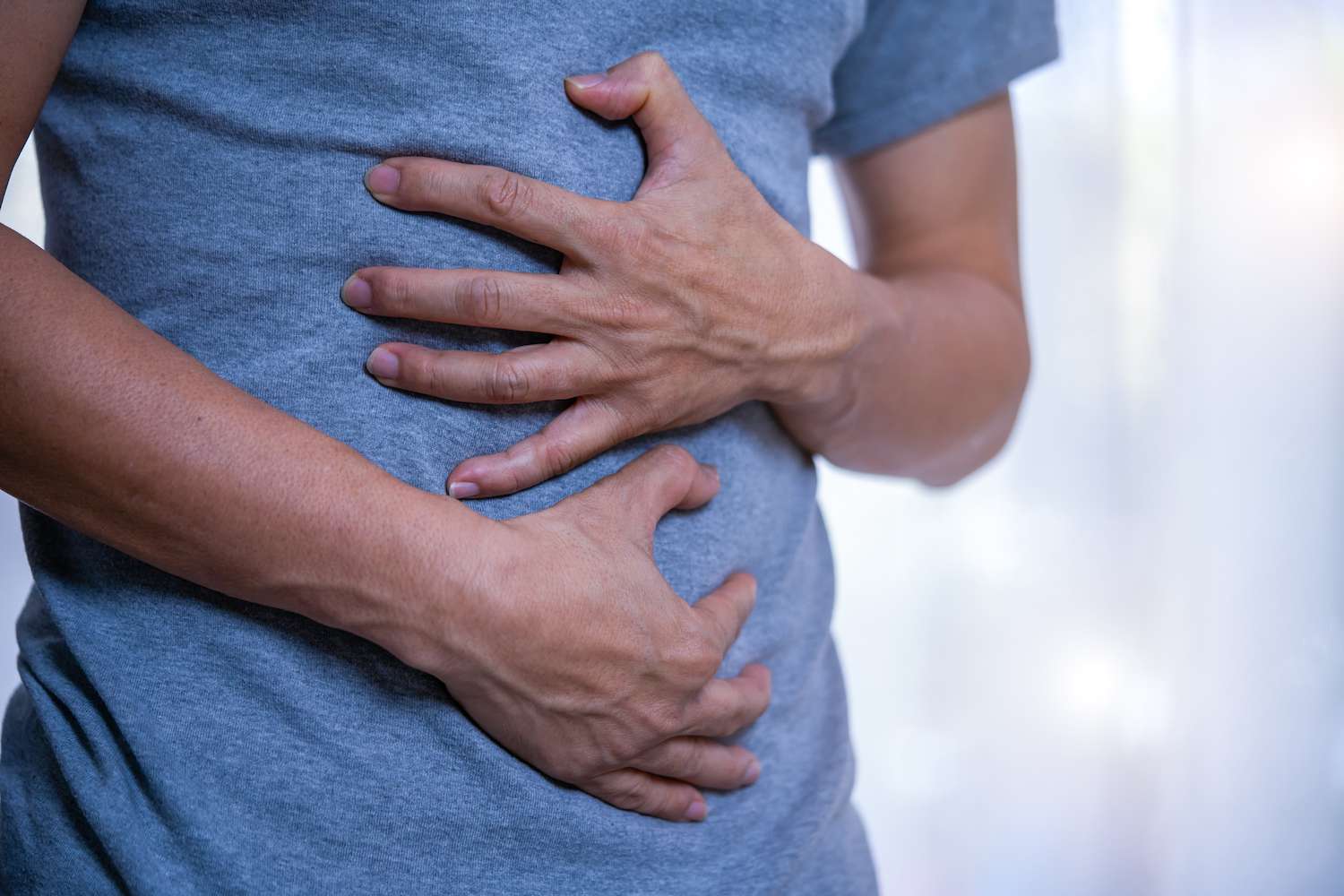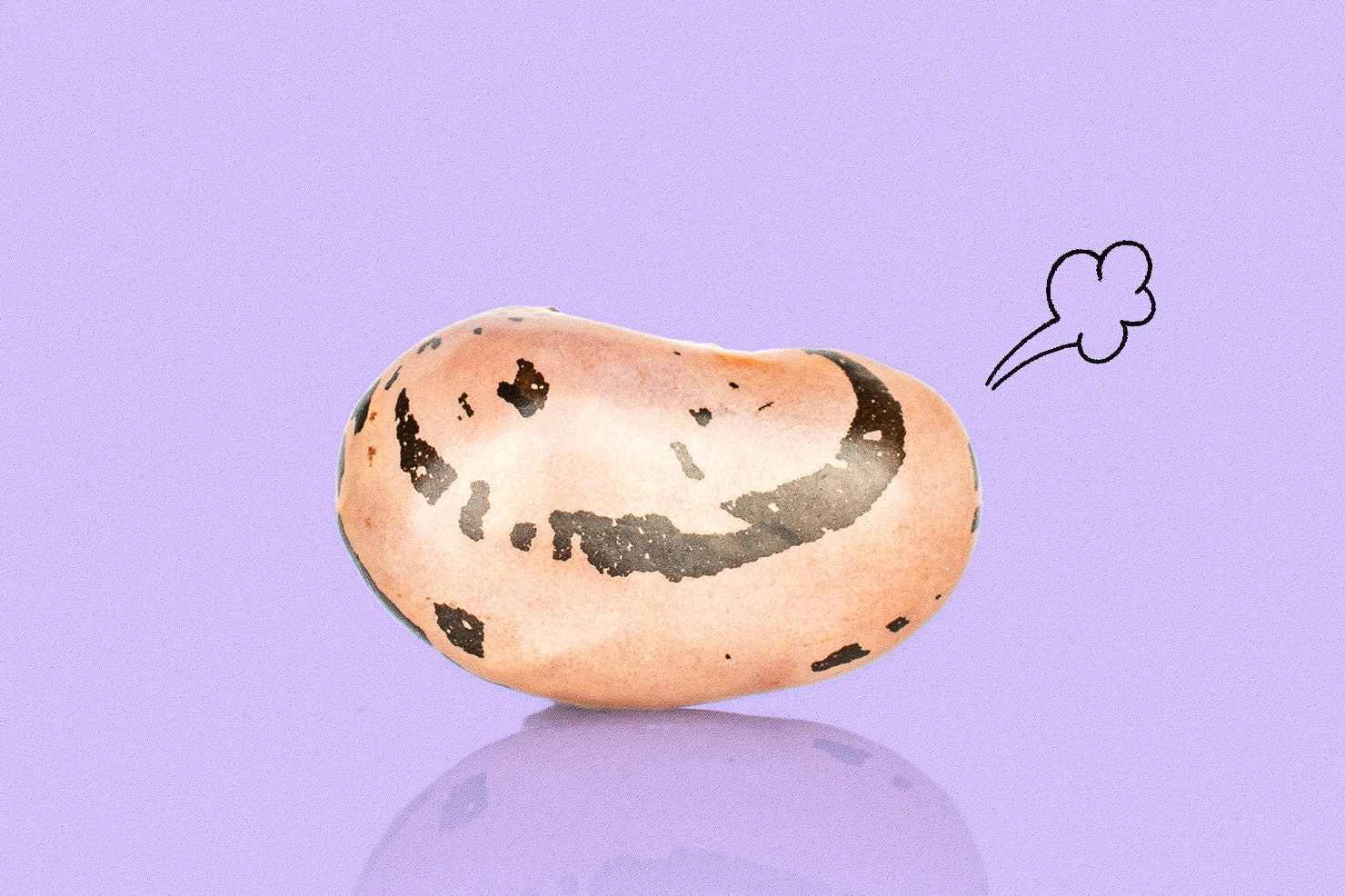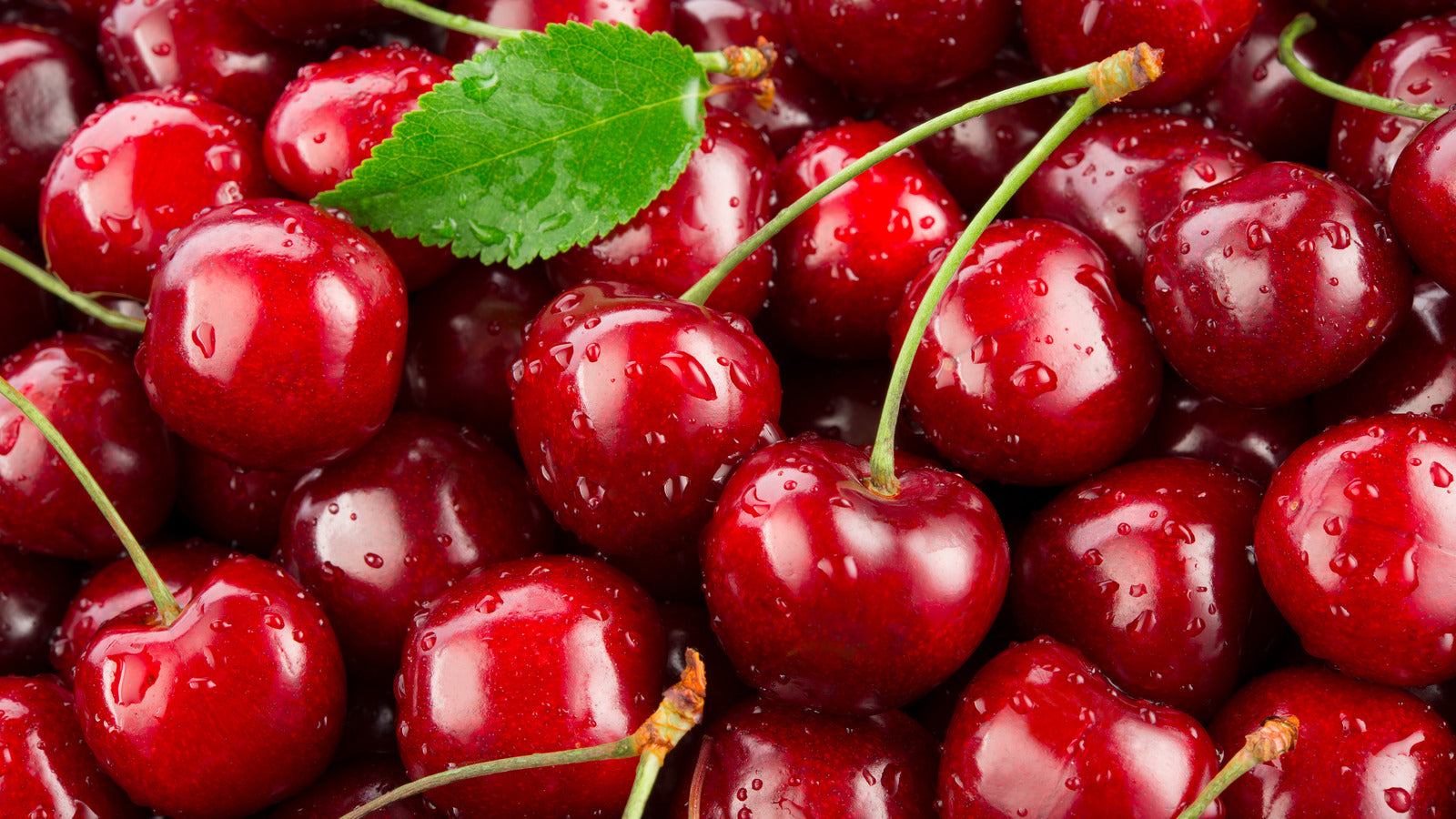

FAQs
Why Do Cherries Make You Fart
Modified: September 23, 2023
Discover why cherries can cause flatulence and find answers to other general questions about this common bodily function.
(Many of the links in this article redirect to a specific reviewed product. Your purchase of these products through affiliate links helps to generate commission for Under-tec.com, at no extra cost. Learn more)
Table of Contents
Introduction
Cherries are a delicious and nutritious fruit that many people enjoy. They are packed with vitamins, minerals, and antioxidants, making them a popular choice for a healthy snack. However, some individuals may experience an unexpected side effect after indulging in this tasty fruit – flatulence, or the passing of gas. If you’ve ever wondered why cherries make you fart, you are not alone.
Farting, though often seen as an embarrassing bodily function, is a normal and natural part of the digestive process. It occurs when excess gas builds up in the digestive system and needs to be released. While some gas is produced during the digestion of food, certain foods can contribute to an increase in gas production, leading to more frequent episodes of farting.
Cherries, like many other fruits, contain high amounts of fiber. Fiber is an essential component of a healthy diet as it aids in digestion and helps maintain proper bowel movements. However, consuming large quantities of fiber-rich foods, including cherries, can stimulate the production of gas in the intestines, leading to flatulence.
Additionally, cherries contain natural sugars, such as fructose and sorbitol. These sugars can be difficult for some individuals to digest, especially those with certain gastrointestinal conditions such as irritable bowel syndrome (IBS) or fructose intolerance. When these sugars reach the large intestine undigested, they can be fermented by bacteria, resulting in the production of gas and bloating.
It’s important to note that not everyone will experience gas or bloating after eating cherries. Factors such as individual tolerance, gut health, and the amount of cherries consumed can all play a role in determining whether flatulence will occur. Furthermore, the preparation method of cherries, such as eating them fresh or dried, may also affect their impact on digestion.
While farting is a natural bodily function, excessive gas and bloating can be uncomfortable and embarrassing for some individuals. If you find that cherries consistently cause flatulence, there are measures you can take to minimize this effect. In the following sections, we will explore the potential causes of farting from cherries and provide tips to help reduce flatulence while still enjoying this delicious fruit.
Potential Causes of Farting
There are several potential causes of farting after consuming cherries. Understanding these causes can help shed light on why some individuals may be more prone to flatulence than others when enjoying this fruit.
One of the main factors contributing to increased flatulence is the high fiber content in cherries. Fiber is a complex carbohydrate that humans cannot fully digest, but it plays a crucial role in maintaining a healthy digestive system. It adds bulk to the stool, aids in bowel movements, and promotes the growth of beneficial gut bacteria. However, when consumed in large amounts, fiber can ferment in the colon, leading to the production of gas and subsequent farting.
In addition to fiber, cherries contain natural sugars such as fructose and sorbitol. While these sugars are naturally occurring, some individuals have difficulty digesting them. For those with conditions like fructose intolerance or irritable bowel syndrome, the undigested sugars can fuel the growth of gut bacteria and lead to increased gas production.
Furthermore, some people may experience flatulence after eating cherries due to their high water content. Cherries are made up of approximately 80% water, which can create a higher volume of stool and increase bowel movements. This can lead to a quicker transit time in the digestive tract, resulting in less absorption of gas and more flatulence.
Another potential cause of farting after consuming cherries is the presence of certain compounds, such as polyols. Polyols are a type of sugar alcohol found in cherries and can have a laxative effect on the digestive system, leading to increased gas production and flatulence.
It’s worth noting that individual tolerance plays a significant role in the likelihood of experiencing flatulence from cherries. Some people may have a more sensitive digestive system or be more prone to gas production, making them more susceptible to experiencing flatulence after enjoying cherries.
While farting is a normal bodily function, excessive flatulence can be uncomfortable and embarrassing for some individuals. If you find that cherries consistently cause flatulence, there are steps you can take to mitigate this effect. In the following sections, we will delve deeper into the specific compounds in cherries that can cause flatulence and explore tips to reduce gas and bloating while still enjoying this delicious fruit.
Cherry’s Effect on Digestion
When it comes to digestion, cherries can have both positive and negative effects on the digestive system. Understanding the impact of cherries on digestion can help explain why they may cause flatulence in some individuals.
Firstly, cherries are rich in dietary fiber, which is beneficial for digestive health. Fiber plays a crucial role in regulating bowel movements, promoting regularity, and preventing constipation. It adds bulk to the stool, allowing it to move through the digestive tract more efficiently. This can help prevent the buildup of gas in the intestines and reduce the likelihood of flatulence.
Additionally, the fiber in cherries acts as a prebiotic, providing nourishment for beneficial gut bacteria. These bacteria help break down food and produce essential nutrients and short-chain fatty acids that contribute to overall digestive health. By supporting a healthy balance of gut bacteria, cherries can aid in digestion and promote a healthy gut environment.
On the other hand, cherries also contain certain compounds that can have a negative impact on digestion for some individuals. Natural sugars like fructose and sorbitol, which are present in cherries, can be difficult to digest for those with certain gastrointestinal conditions. These sugars can pass through the small intestine undigested and reach the large intestine, where they are fermented by gut bacteria. This fermentation process produces gas as a byproduct, leading to flatulence and bloating.
Another factor to consider is the high water content of cherries. While this can have a positive effect on digestion by promoting hydration and preventing constipation, it can also contribute to increased bowel movements. This can accelerate transit time through the digestive tract, resulting in less gas absorption and a higher likelihood of flatulence.
It’s important to note that the effect of cherries on digestion can vary from person to person. Factors such as individual tolerance, gut health, and the amount of cherries consumed can all influence how cherries are digested and whether flatulence occurs.
In the next section, we will explore the specific compounds in cherries that can cause flatulence and delve into the impact of cherry consumption on gut bacteria. Additionally, we will provide tips to minimize flatulence while still enjoying the many nutritional benefits of this delicious fruit.
Compounds in Cherries that Cause Flatulence
While cherries are a nutritious fruit, they contain certain compounds that can contribute to flatulence in some individuals. Understanding these compounds can provide insight into why cherries may cause gas and bloating.
One of the primary culprits is the presence of natural sugars, such as fructose and sorbitol, in cherries. These sugars are known as FODMAPs (fermentable oligosaccharides, disaccharides, monosaccharides, and polyols), which are a group of carbohydrates that can be difficult for some people to digest. When these sugars reach the large intestine undigested, they are fermented by bacteria in the gut, leading to gas production and subsequent flatulence.
Fructose, in particular, can pose a challenge for those with fructose malabsorption or intolerance. The body may struggle to absorb and process fructose efficiently, causing it to pass into the colon where bacteria ferment it. This fermentation process produces gas and can lead to symptoms such as bloating, abdominal pain, and flatulence.
Sorbitol, another sugar found in cherries, can also contribute to flatulence. Sorbitol is a sugar alcohol that is often used as an artificial sweetener. While it occurs naturally in some fruits, including cherries, it can be difficult for the body to digest fully. Similar to fructose, sorbitol can reach the large intestine undigested, where bacteria ferment it and produce gas.
In addition to sugars, cherries also contain polyphenols, which are a class of antioxidants. Polyphenols have many health benefits, including anti-inflammatory and anti-cancer properties. However, some polyphenols, such as tannins, can have a mildly astringent effect on the digestive system. This astringency can lead to increased gas production and potentially contribute to flatulence in sensitive individuals.
It’s worth mentioning that not everyone will experience flatulence from these compounds in cherries. Individual tolerance, gut health, and the amount of cherries consumed can all play a role in determining whether gas and bloating occur. Additionally, how the cherries are prepared and consumed, such as eating them fresh, dried, or as cherry juice, can affect their impact on digestion.
In the following section, we will explore the impact of cherry consumption on gut bacteria and discuss tips to help reduce flatulence while still enjoying the many health benefits of cherries.
Impact of Cherry Consumption on Gut Bacteria
Cherry consumption can have a significant impact on the composition and activity of gut bacteria, also known as the gut microbiota. These microorganisms play a crucial role in digestion, metabolism, immune function, and overall gut health. Understanding the impact of cherries on gut bacteria can help shed light on why some individuals may experience flatulence after consuming this fruit.
Cherries, like many other fruits and vegetables, are rich in dietary fiber. Fiber serves as a prebiotic, which means it provides nourishment for beneficial gut bacteria. These bacteria ferment dietary fiber in the colon, producing short-chain fatty acids (SCFAs), such as butyrate. SCFAs are a vital energy source for the cells lining the colon and have numerous health benefits, including reducing inflammation, promoting gut health, and aiding in the absorption of nutrients.
Research has shown that consuming fiber-rich foods, like cherries, can increase the abundance of beneficial gut bacteria, such as Bifidobacteria and Lactobacillus. These bacteria help maintain a healthy gut environment by crowding out harmful bacteria and promoting proper digestion. However, the fermentation of fiber by gut bacteria can also lead to the production of gas, which can cause flatulence in some individuals.
In addition to fiber, cherries contain polyphenols, which are natural compounds known for their antioxidant and anti-inflammatory properties. Polyphenols have been shown to have a beneficial impact on gut bacteria. They can act as prebiotics, promoting the growth of beneficial bacteria while inhibiting the growth of harmful bacteria. However, certain polyphenols, such as tannins, can also have an astringent effect on the digestive system, potentially leading to increased gas production and flatulence in sensitive individuals.
Furthermore, the impact of cherry consumption on gut bacteria can vary depending on the individual’s overall gut health and gut microbiome composition. Factors such as genetics, diet, lifestyle, and medication use can all influence the diversity and balance of gut bacteria. Therefore, some individuals may experience more significant changes in gut bacteria composition and function after consuming cherries, while others may not notice significant effects.
It’s important to note that a healthy gut microbiome is essential for overall well-being. While farting may be an inconvenience, a diverse and balanced gut bacteria community plays a vital role in maintaining good digestive health. Therefore, the benefits of consuming cherries and their impact on gut bacteria should not be overlooked, despite the potential for flatulence.
In the next section, we will provide some tips to help reduce flatulence while still enjoying the nutritional benefits of cherries.
Tips to Reduce Flatulence from Cherries
While enjoying cherries, it’s possible to minimize flatulence by following these simple tips:
- Gradually increase cherry consumption: If you’re not accustomed to eating cherries regularly, start by gradually increasing your intake. This allows your body to adjust to the fiber and sugars present in cherries, reducing the likelihood of experiencing gas and bloating.
- Pair cherries with other foods: Combining cherries with other foods can help mitigate their potential flatulence-inducing effects. Pairing cherries with protein-rich foods like Greek yogurt or almonds can slow down digestion and minimize the production of gas.
- Opt for frozen or canned cherries: Freezing or canning cherries can break down some of their complex sugars, making them easier to digest. If you find that fresh cherries cause flatulence, try incorporating frozen or canned cherries into your diet instead.
- Consider cooking cherries: Cooking cherries can help break down the fiber and sugars present in the fruit, making them more easily digestible for some individuals. Try adding cooked cherries to oatmeal, baked goods, or sauces to enjoy their flavor while minimizing the potential for flatulence.
- Choose lower FODMAP varieties: Different cherry varieties can have varying levels of FODMAPs, including fructose and sorbitol. If you’re particularly sensitive to these sugars, opt for cherry varieties that are lower in FODMAPs, such as Rainier cherries.
- Explore gut-friendly supplements: Certain supplements, such as digestive enzymes or probiotics, may help improve digestion and reduce gas and bloating. Consult with a healthcare professional to determine which supplements, if any, may benefit your specific digestive needs.
- Practice mindful eating: Eating slowly and chewing your food thoroughly can aid in digestion. By taking the time to savor each bite, you can give your body the opportunity to properly break down and digest the cherries, minimizing the likelihood of gas and bloating.
- Listen to your body: Pay attention to how your body reacts to cherries. If you consistently experience flatulence or discomfort after consuming cherries, you may need to reduce your intake or eliminate them from your diet temporarily. Keep a food diary to track your symptoms and identify any patterns or triggers.
Remember, flatulence is a natural bodily function, and occasional gas after eating cherries is usually not cause for concern. However, if you experience severe or persistent digestive symptoms, it is advisable to consult a healthcare professional for further evaluation and guidance.
Conclusion
Cherries, with their high fiber and natural sugar content, can contribute to flatulence in some individuals. The fiber in cherries promotes healthy digestion and supports the growth of beneficial gut bacteria. However, consuming excessive amounts of fiber or having certain gastrointestinal conditions can lead to the fermentation of sugars in the large intestine, resulting in gas production and flatulence.
Compounds like fructose, sorbitol, and polyphenols in cherries can also play a role in causing flatulence. Fructose and sorbitol can be difficult to digest for some individuals, while certain polyphenols may have an astringent effect on the digestive system.
Despite the potential for flatulence, cherries still offer numerous health benefits. They are packed with vitamins, minerals, antioxidants, and contribute to a healthy gut microbiome. It’s important to remember that individual tolerance, gut health, and the way cherries are consumed can influence their impact on digestion.
If you find that cherries cause excessive flatulence, there are practical tips to minimize this effect. Gradually increasing cherry consumption, pairing cherries with other foods, opting for frozen or cooked cherries, and choosing lower FODMAP varieties can help reduce flatulence. Additionally, practicing mindful eating, considering gut-friendly supplements, and listening to your body’s response can contribute to improved digestion.
Ultimately, understanding your individual body’s response and finding the right balance of cherries in your diet is key. Cherries have many nutritional benefits, and with a bit of experimentation and mindful consumption, you can enjoy them while minimizing flatulence.
Remember that if you experience severe or persistent digestive symptoms, it is always advisable to consult with a healthcare professional for personalized advice and guidance.
